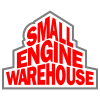Small engines are the heart of our valuable machinery, powering performance and efficiency. Without proper care, we can’t expect them to last. Regular and consistent maintenance is crucial for keeping our engines—and our equipment—running smoothly and effectively.
Why Engine Maintenance Matters
- Maximizes Engine Life: Regular maintenance helps you maximize the lifespan of your engine. Neglecting maintenance can lead to more frequent replacements.
- Reduces Repair Costs: Well-maintained engines generally require fewer repairs compared to those that are not. By staying on top of maintenance, you can reduce the number of expensive repairs.
- Saves Time: While maintenance requires some time, it ultimately saves you more in the long run. Consistent care reduces the need for major repairs, allowing you to focus on your projects rather than dealing with engine issues.
Key Maintenance Tasks
There are several components to maintaining your small engine, and each is equally important as part of your maintenance routine.
- Changing your oil: The frequency will depend on the type of equipment and how often you use it, but you should change the oil at least once a year. Note: Not every small engine will need an oil change (some mix the oil in with the fuel), so check your owner’s manual to see the proper procedure for your engine and equipment.
- Replacing Air Filter: Much like with oil, several factors determine when to replace the air filter, such as engine type, operating conditions, and manufacturer recommendations. It is typically recommended to replace the air filter every 25 to 100 hours of operation.
- Use New Gas: Gas can actually go bad, so it is important to always use fresh fuel. Typically, if gas is over 4 months old, it’s time to recycle and get new gas.
- Clean or Replace Spark Plug(s): Spark plugs provide the essential spark for your engine to start. If they become dirty or damaged, they can lead to engine issues such as difficult starts or misfires, potentially causing long-term damage. Spark plugs should be checked at least once a season, but poor performance, misfires, and hard starts are all signs that a replacement may be needed.
Tips for Effective Engine Maintenance
- Create a Maintenance Schedule: Consistency is very important for keeping your equipment in top shape. Find a schedule that works for you and develop good habits.
- Use Quality Parts and Fluids: Using high-quality parts and fluids will ensure you get optimal results. Research which products are most compatible with your specific engine.
- Consult the Owner’s Manual: Following the owner’s manual ensures you provide the right care for your specific engine. It will also give you a better idea of how often maintenance is needed and help you create an effective service schedule.
How Small Engine Warehouse Can Help
We’re here to help you keep your small engines running smoothly. Our experienced team is ready to guide you to the right parts and products for your needs. With quality products and expert advice, you can be confident that your engine is receiving the care it deserves. Explore all of our options online, or call to speak with someone on our team. We aspire to be your partner in keeping your equipment in top shape.

